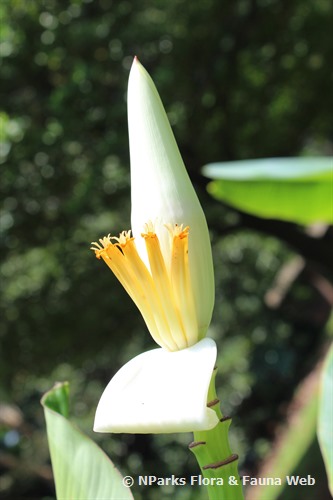
Name
Classifications and Characteristics
| Plant Division | Angiosperms (Flowering Seed Plants) (Monocotyledon) |
|---|---|
| Plant Growth Form | Herbaceous Plant |
| Lifespan (in Singapore) | Perennial |
| Mode of Nutrition | Autotrophic |
Biogeography
| Native Distribution | Of horticultural origin. |
|---|---|
| Native Habitat | Terrestrial |
| Preferred Climate Zone | Tropical |
Description and Ethnobotany
| Growth Form | Herbaceous plant grows to 2-3 m tall. |
|---|---|
| Foliage | Leaves are large, paddle-shaped, solid green-colored with a reddish midrib below. |
| Stems | The stem is a pseudostem, formed by tightly packed leaf sheathes. |
| Flowers | The inflorescence is erect, consisting of small yellow flowers and creamy-white bracts. |
| Fruit | The fruit is small and cylindrical, white colored. |
| Cultivation | Plants do well in full sun or in a sheltered location with consist moist but well-drained, fertile soils. The plant can be used as focal plants in the garden, and also suitable for container-growing. Give ample spacing between plants so that leaves have space to spread out gracefully. Propagation can be done by dividing suckers. Fruits is inedible for humans and usually planted for ornamental purpose. |
| Etymology | The species epithet 'ornata' means ornamental. |
Landscaping Features
| Desirable Plant Features | Ornamental Flowers, Ornamental Foliage, Ornamental Fruits, Ornamental Form |
|---|---|
| Landscape Uses | Parks & Gardens |
Plant Care and Propagation
| Light Preference | Full Sun, Semi-Shade |
|---|---|
| Water Preference | Lots of Water, Moderate Water |
| Rootzone Tolerance | Moist Soils, Well-Drained Soils |
| Propagation Method | Sucker |
Foliar
| Foliage Retention | Evergreen |
|---|---|
| Mature Foliage Colour(s) | Green |
Floral (Angiosperm)
| Flower Colour(s) | Cream / Off-White, Yellow / Golden |
|---|---|
| Flower Grouping | Cluster / Inflorescence |
Fruit, Seed and Spore
| Mature Fruit Colour(s) | White |
|---|
Image Repository
Others
| Master ID | 32882 |
|---|---|
| Species ID | 7296 |
| Flora Disclaimer | The information in this website has been compiled from reliable sources, such as reference works on medicinal plants. It is not a substitute for medical advice or treatment and NParks does not purport to provide any medical advice. Readers should always consult his/her physician before using or consuming a plant for medicinal purposes. |

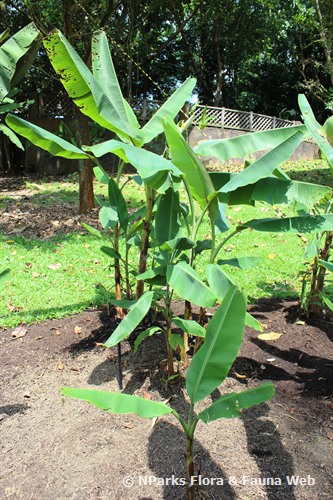
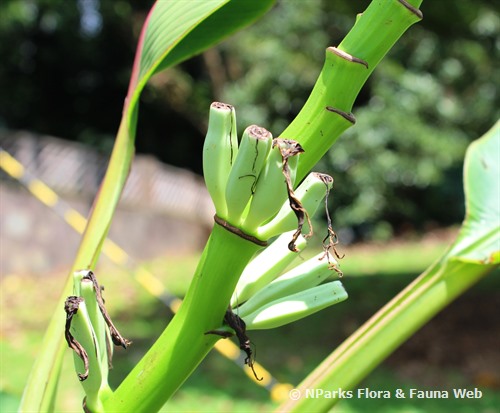
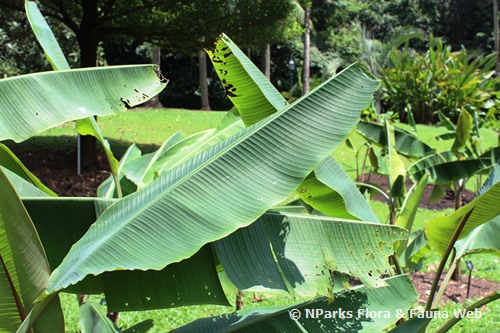
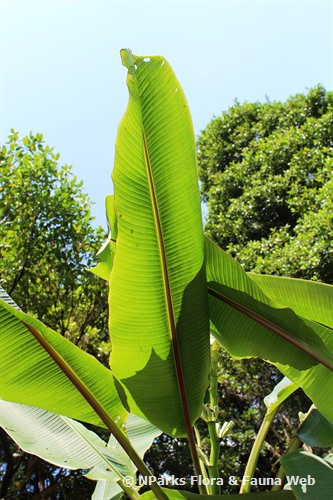
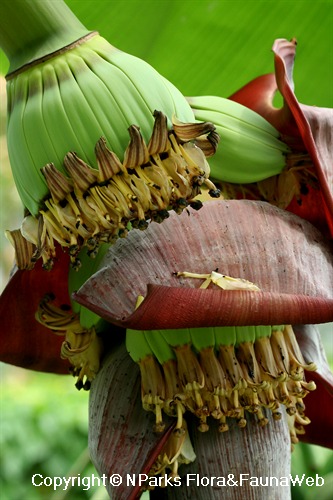

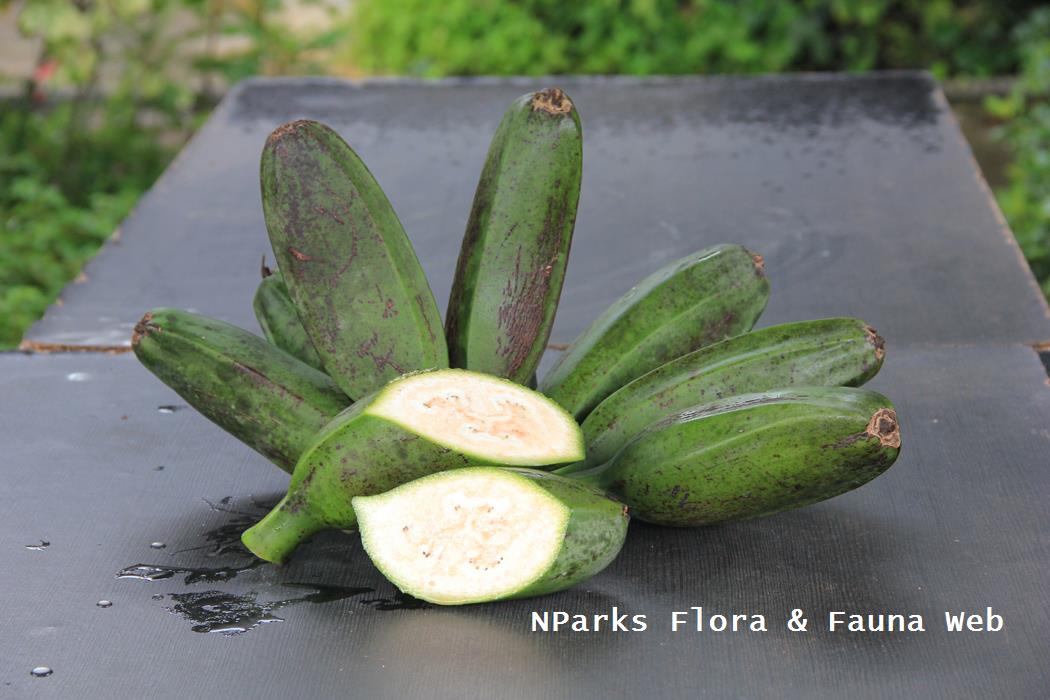
.jpg)